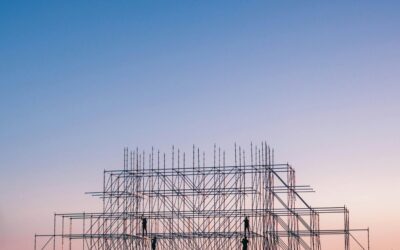This episode of the Urban Exchange podcast focuses on the evolution of urban resilience and the critical role of the City Resilience Framework. Hosts Lauren Sorkin and Paul Wilson welcome Jo Da Silva, the Global Director of Sustainable Development at Arup, who shares insights from her decade-long journey in developing this influential framework.
The conversation begins by exploring the resilience challenges cities faced in 2024, from heatwaves and wildfires to political upheaval. Sorkin highlights how the sub-national community rallied together, citing the Resilient Cities Network’s work on the intersection of climate and health. The discussion then delves into the Urban 20 (U20) initiative, which aims to amplify city voices in the G20 process, particularly around the need for increased investment in climate resilience, social safety nets, and urban infrastructure.
Da Silva provides a compelling overview of the City Resilience Framework, tracing its origins back to 2007 and research conducted in Asian cities. She explains how the framework evolved to identify the 52 (now 22) key elements that contribute to a city’s ability to cope, adapt, and transform in the face of disruption. The framework’s four pillars – health and wellbeing, institutions, infrastructure, and governance – are explored in depth, showcasing its practical application for cities.
The interview also examines the challenges of measuring and comparing city resilience, as well as the critical role of finance in driving resilience initiatives. Da Silva emphasises the need to move beyond pledges and into tangible delivery, with the City Resilience Framework serving as a tool to help cities attract investment and implement transformative projects.
Find out more about the City Resilience Framework here.
The Speakers
Jo da Silva
Paul Wilson
Lauren Sorkin
About Jo da Silva
Jo da Silva is the global director of sustainable development at Arup, leading the firm’s activities to address the climate, biodiversity and equity crises through creating safe, inclusive and resilient communities while safeguarding the planet.
Jo earned global recognition as an engineer who has applied knowledge and design expertise to improve safety, promote inclusivity and enhance resilience of communities, cities and infrastructure globally. She led the planning, design and implementation of a wide range of buildings, infrastructure, and urban regeneration projects for Arup, and has also worked extensively in crisis and disaster contexts for non-governmental, UN agencies and multi-laterals.
About Paul Wilson
Paul Wilson is the Chair of the SmartCitiesWorld Advisory Board, and Chief Business Officer for the Connected Places Catapult. Paul has more than 25 years’ international leadership, sales and marketing experience in the B2B Technology Media Telecom sector, including being CMO of global digital transformation association TM Forum and $3bn SunGard Financial Systems.
After running the West of England LEP, Paul set up the multi-award-winning Bristol Is Open smart city project in 2014 and created the widely endorsed City as a Platform Manifesto a couple of years later. He went on to advise the UK Government on the design of its 5G Testbeds & Trials programme, and more recently on how the programme should evolve. He is an Honorary Research Fellow at the University of Bristol’s Smart Internet Lab.
About Lauren Sorkin
Lauren Sorkin is the Executive Director of the Resilient Cities Network where she oversees global efforts to strengthen cities in the face of the complex and interconnected challenges. Leading a team of urban resilience professionals across the globe in collaboration with Chief Resilience Officers in 40 countries, her work builds on the unique capacity, breadth, and legacy of the 100 Resilient Cities Program to enhance the resilience of communities and critical infrastructure. She also serves as an advisor and spokesperson on urban resilience, sustainable finance, climate risk, holistic health and women’s leadership.







